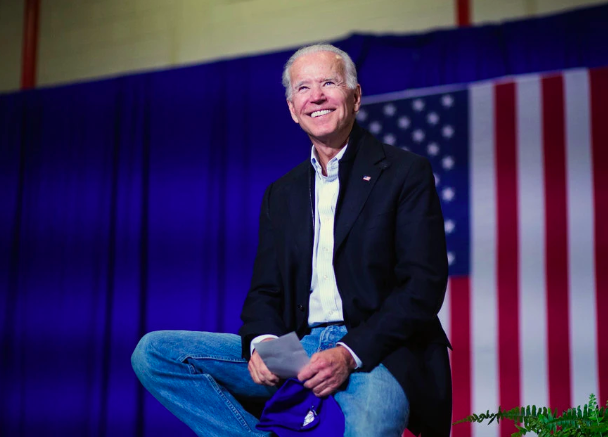
Photo: Maddie McGarvey for The New York Times
Joe Biden, the latest candidate to join the Presidential race, has yet to say where he stands on many of the issues, like the Green New Deal, President Trump’s regulatory rollbacks, and oil and gas drilling on federal land, to name just a few of today’s most hot button issues. We took a look at his record — what he has said about climate change and how he voted on various environmental legislation when he was in the Senate. Here are the highlights. He introduced the first legislation — in 1986 — to establishing a Task Force to study climate change and come up with a plan to address it. He has a lifetime score of 83/100 by the League of Conservation Voters. As Chair of the Senate Foreign Relations Committee, he held numerous hearings on climate change in the 2000s and he pushed for ratification of the Law of the Sea Treaty, one of the most significant environmental agreements ever negotiated, which the U.S. never joined.
We learned most about his current views from a speech to the Conference of Mayors in January of this year, in which he dedicated most of his remarks to the topic of climate change and its impacts, and clean energy. He said we knew we needed a “green revolution” ten years ago and “understood the “urgency in terms of people’s health, economic growth, and quality of life” and the “opportunity” this provides.
- Biden characterized climate change as an “existential” threat
- He described how he led the implementation of the Obama Administration’s economic stimulus package that included the single largest investment in clean energy in the country’s history — $90 billion dollars that created hundreds of thousands of clean energy jobs.
- He spoke to environmental justice issues citing asthma rates, mercury and lead paint, and pollution from factories as hurting “tough” neighborhoods and driving up medical visits.
- He said as well that by 2025 there is “no reason why all of North American can’t get half of its electricity from non-polluting sources. It is within our grasp but for special interests.”
- He also explained that he understood climate change to be the greatest security threat facing the nation because that is how the nation’s military leaders characterized it in the first briefing he received from them upon becoming Vice President.
- He discussed the urgency of sea level rise and extreme weather events and how they are impacting communities today — from heat stress to overburdened sewer systems caused by flooding.
- He observed the importance of the Paris Climate Agreement, the clean power plan, and the clear car rule.
He concluded by saying that “the point is this is really important and it is in our power to stem this” and “we need leaders who understand this is the most urgent priority facing the nation and we will be judged by our children and grandchildren by what we do today.”
Why This Matters: Joe Biden’s record as a Senator on environment and conservation issues was rock solid. More importantly, though, his record as Vice President will give him a long list of climate and conservation accomplishments to tout — many of which he was personally involved in because of the stimulus package early on, and then later in the second term because of the diplomacy around the Paris Agreement. These accomplishments may come as a surprise to many who know him better for his work on trying to find a cure for cancer, gun control, and foreign policy generally. He is optimistic that we can meet the challenge of climate change — but will his optimism seem to minimize the urgency and extent of the climate challenge? We will see.
To Go Deeper: Watch the final 17 minutes of the Conference of Mayor speech — begin at minute 14.
April 25, 2019 » clean energy, climate change, Conference of Mayors, Joe Biden, LCV, Paris Agreement

